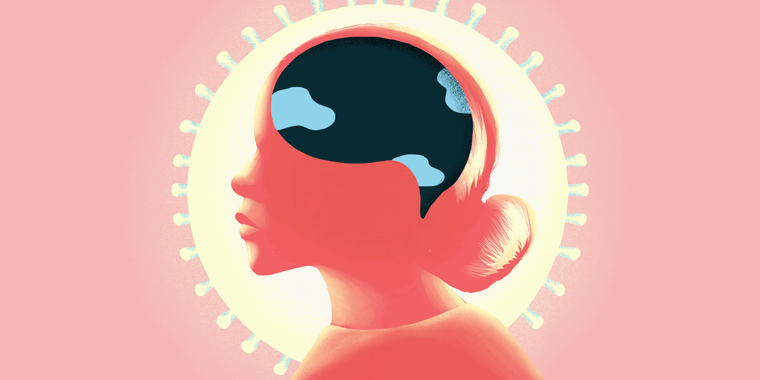As the country enters its second year of pandemic precautions, many people are reporting feeling a "pandemic brain fog" that leaves them absent-minded or forgetful.
NBC News investigative and consumer correspondent Vicky Nguyen called the pandemic brain fog an "umbrella" term "that covers a lot of things happening in our heads," like an inability to focus, difficulty sleeping, feelings of negativity and more. The Atlantic reported on the anecdotal phenomenon earlier this month.
According to Dr. Borna Bonakdarpour, a professor of neurology at Northwestern University's Feinberg School of Medicine in Chicago, the feelings of brain fog can be caused by a wide range of factors, including isolation, anxiety, lack of sleep, a decreased level of exercise and more. All of those feelings can fatigue the brain, especially the frontal network, which contributes to memory, recall and attention.
Removing social and physical stimulation with safety measures like quarantining and social distancing also removes some mental stimulation.
"These factors can affect the way we think and the way we function, how our brain functions," Bonakdarpour said. "We haven't been going out as much. We are not getting enough light. Our daily structures have changed. Our environments have changed. We are distracted more. We have to work, for example, in our houses. There are kids around for some people."
Tyus Williams, an ecologist earning his doctorate at UC Berkeley, told Nguyen that his brain fog made it hard to think clearly.
"There's this kind of staggered delay in performance for me in my day-to-day activities, and I physically feel it, and I can cognitively realize it," Williams explained. "I just feel like there's kind of like this lull that holds me back a little bit ... Something's not right here."
Many on social media reported feeling similarly.
Penn State assistant professor Pepsi Umberger said that in her classroom, many of her students have been mentally absent during class and had difficulties with deadlines and thinking clearly. Many wrote in school journals that they couldn't focus on or absorb class material. Now, she's teaching a course that aims to exercise minds and relieve stress.
"We start each of the classes with a meditation," Umberger said. "One of the exercises (the students) enjoyed the most (is) the 'Tear It Up' exercise. You're just writing down all the stresses that are in your life right now, and then you're tearing it up into small little pieces."
Umberger said that her students have reported feeling better.
"The students said that they felt that they had good tools for managing stress, and they felt a little bit more relaxed," Umberger said.
Bonakdarpour said that people looking to battle their brain fog should try three steps:
1. Safely socializing with friends and family, preferably outdoors.
Movement and regular exercise can also help: Bonakdarpour advises adding short bouts of exercise to your day when possible. Getting outside for a walk, especially on a sunny day, can make a major impact.
2. Challenge your brain with activities like puzzles and reading.
Need a new book recommendation? Check out Jenna Bush Hager's March book club pick: "What's Mine and Yours" by Naima Coster.
3. Listen to music more often.
"Music is very close to our memory. Music that we are familiar with, that brings back memories," Bonakdarpour said. "It taps into our attention. It can stimulate the brain. So it actually creates a feeling that you are with someone and you're not alone, so it creates a sense of socialization."
While the pandemic brain fog can feel alarming, Nguyen said that experts don't think the effects will be permanent once the pandemic comes to an end.
"The good news is that our brains are resilient," Nguyen said. "Experts don't think this is permanent, as long as we can go back to some of our routines and interactions. They say healthy diet and getting enough sleep (is) also vital for your brain."
Related:


